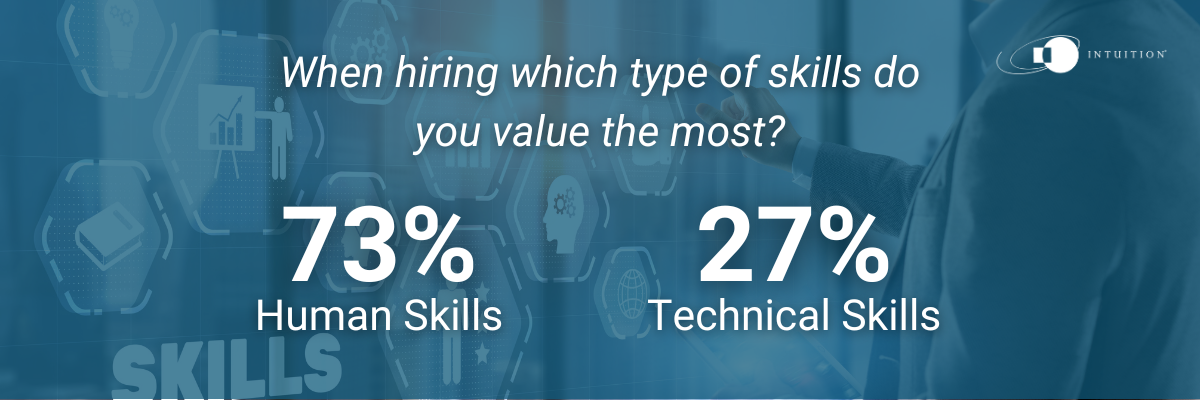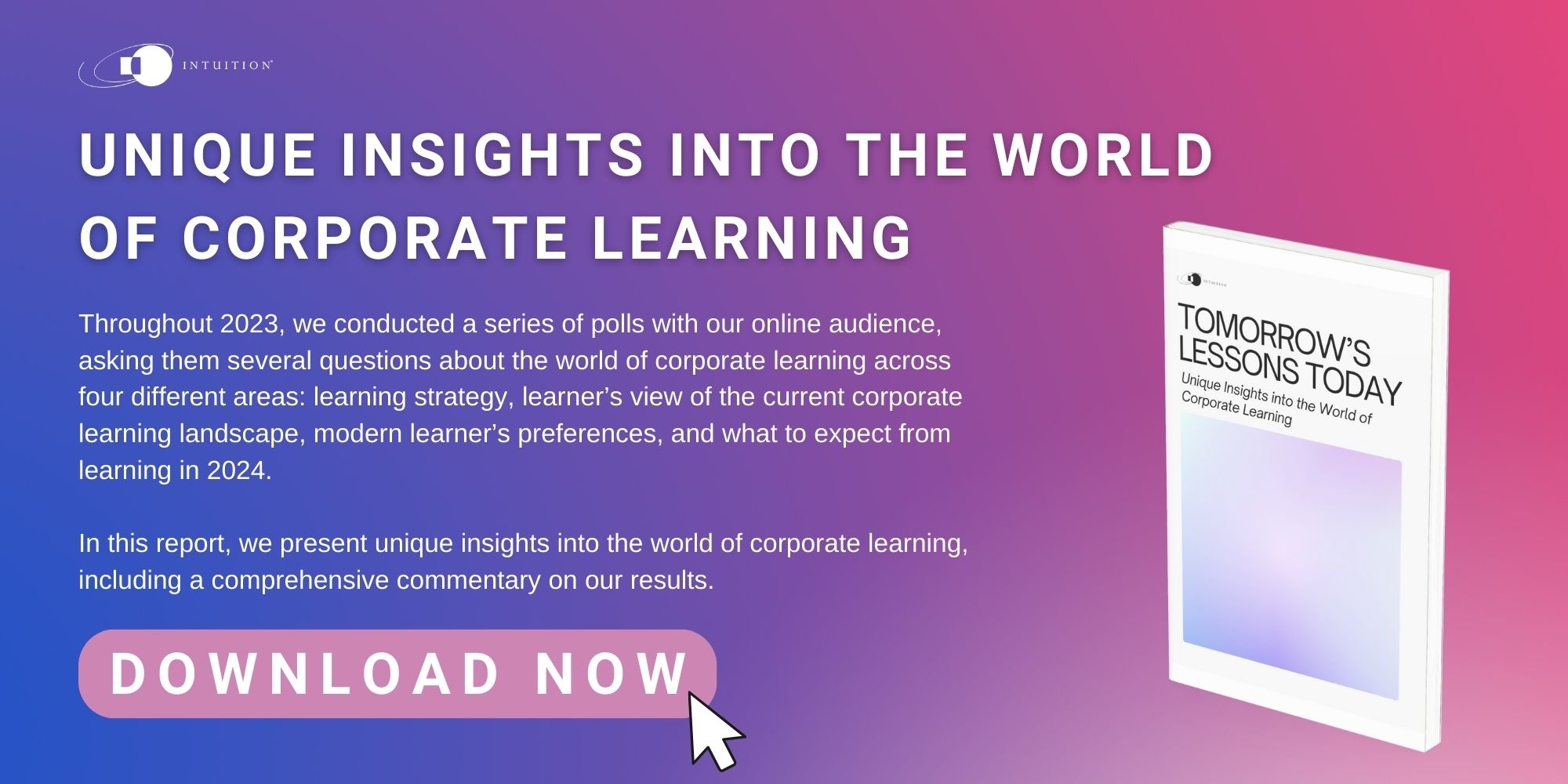When hiring, which type of skills do you value most?
This article is taken from our report ‘Tomorrow’s Lessons Today: Unique insights into the World of Corporate Learning’. Throughout 2023, we asked our online audience a series of questions relating to corporate learning with some interesting results.
To access the full report, click here: Unique Insights into the World of Corporate Learning

This poll clearly demonstrates that human skills are now more valued than technical, but why is this? And what are the main types of human skills learning leaders should focus on?
Why are Human Skills now seen as more Important?
The shift in skill priorities from technical to human reflects the changing demands of the modern workplace. As technology continues to advance and industries become more interconnected, technical skills now have a shorter shelf life. On the other hand, human skills encompass a range of qualities that are essential for success in any role and have lasting value.
An investment in human skills therefore represents a strong investment for the future.
Here are some of the key human skills you should focus on developing in your workforce:
Collaboration and communication skills
One crucial human skill that employers value is collaboration. In today’s team-oriented work environments, the ability to work effectively with others is paramount. Collaboration fosters innovation, encourages diverse perspectives, and promotes synergy within teams. Forging strong team bonds, whether in the office or remotely, is essential for achieving shared goals and driving the organization forward.
Another vital human skill is communication. Effective communication is the foundation of successful relationships, both within and outside the organization. Clear and concise communication ensures that ideas are conveyed accurately, minimizes misunderstandings, and promotes efficient collaboration. In a digital age where remote work is increasingly prevalent, the skill of communicating effectively through digital channels is invaluable.
Critical thinking and problem solving skills
Critical thinking is a key human skill that allows individuals to analyze, evaluate, and interpret information objectively. It involves questioning assumptions, considering alternative perspectives, and making informed decisions. Employers value critical thinkers because they bring powerful reasoning to support organizational decisions, ultimately driving innovation and problem-solving.
Problem-solving skills go hand in hand with critical thinking. Organizations face challenges and obstacles on a daily basis, and individuals who possess strong problem-solving skills can identify and implement effective solutions. These individuals are proactive, resourceful, and capable of navigating complex problems with creativity and resilience.
Productivity and time management
In a fast-paced work environment, productivity and time management are essential. Effective time management allows individuals to prioritize tasks, meet deadlines, and maximize their efficiency. It also plays a crucial role in maintaining work-life balance and personal well-being.
Building motivation is also essential. Motivated employees are more likely to show initiative, set ambitious goals, and persist in the face of challenges. They inspire and influence others, creating a positive and productive work environment.
Building resilience and empathy
Resilience is the ability to adapt and bounce back from setbacks. In a world characterized by constant change and uncertainty, resilience is a highly sought-after skill. Resilient individuals can navigate challenges, learn from failure, and remain motivated and focused on their goals.
Empathy is a fundamental human skill that promotes understanding and effective communication. By fostering empathy, organizations can create a culture of collaboration, inclusion, and support.

Summary
- Prioritizing human skills in the hiring process and investing in the development of these skills within the organization yield numerous benefits.
- Cultivating key human skills improves performance and drives innovation.
- When individuals possess strong human skills, they contribute to a positive work culture, build effective relationships, and foster collaboration. This, in turn, enhances the organization’s ability to adapt, problem-solve, and seize opportunities.


